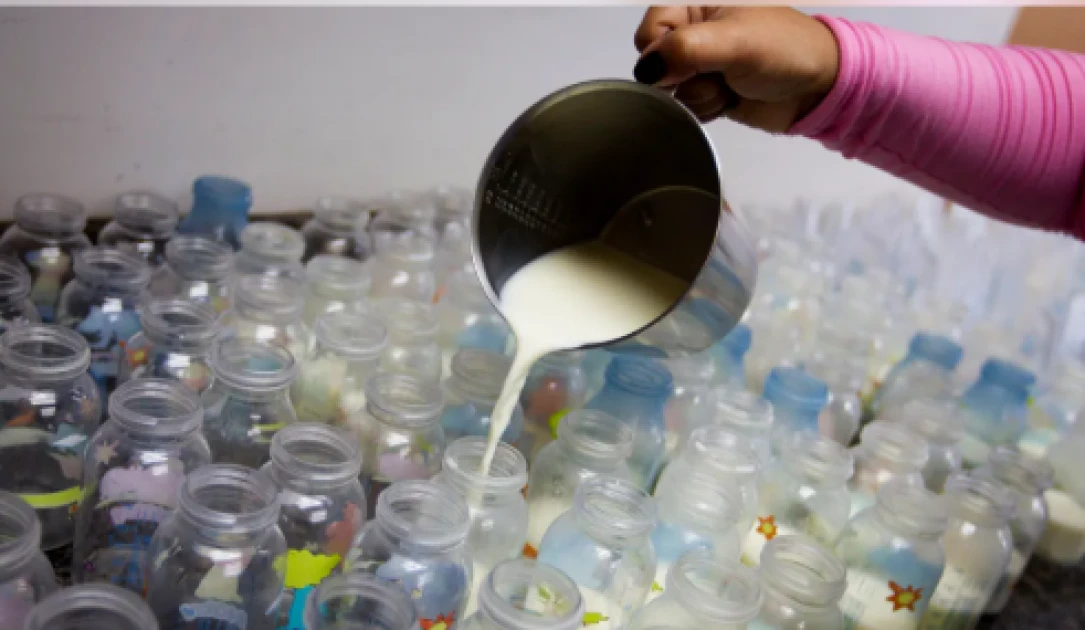Breastfeeding week: Why bottle feeding is not good for your baby

A nurse fills baby bottles inside the child care unit at the Santa Ana public maternity hospital in Caracas. (REUTERS/Carlos Garcia Rawlins)

Audio By Carbonatix
In Kenya and many other parts of the world health authorities including the World Health Organization (WHO) as well as UNICEF have emphasized on the need to promote and support exclusive breastfeeding for at least six months to improve babies’ health and avert risks that bottle feeding poses to them.
One of the risks related to bottle feeding is the increase of the chances of a baby getting infections like diarrhea and other forms of illnesses caused by bacteria.
Bottle fed liquids are easily contaminated as bacteria easily multiplies in milk residues left inside the bottle when not cleaned properly and sterilized, which in return exposes the infant to germs that cause vomiting, dehydration and diarrhea that is one of the main causes of death in infants.
Bottle feeding could also create something referred to as ‘nipple confusion’ in babies. This is because the bottle nipple allows milk to flow much easily as compared to the breast whereby the baby requires to put in effort in suckling to get milk to come out and as a result the baby gets easily used to sucking from the bottle since it’s easier for them.
This affects the mother’s ability to breast feed and at the same time encouraging the baby to refuse breastfeeding altogether. It leads to a disruption of exclusive breastfeeding.
In Kenya there has been a significant step made in promoting exclusive breastfeeding, rising from 13% in 2003 up to 60% in 2022.
This progress, the WHO says, could be altered if bottle feeding is embraced again.
Introduction of bottles reduces the time spent by a baby at the breast, reducing the stimulation required for milk production which in return causes low milk supply, forcing mothers to depend on formula and other foods for the baby.
Breast milk is superior in nutrition and immunity for a baby and can be inhibited by bottle feeding. Breast milk normally contains fats, carbohydrates, proteins, vitamins and minerals that can’t be replicated in formula that protect the babies from common childhood illnesses such as gastrointestinal diseases, respiratory illnesses, sudden infant death syndrome (SIDS), and allergies which may be deprived to be baby through bottle feeding.
To add to that, breastfeeding isn’t only a source of nutrition for the baby but also a form of bonding experience between the mother and baby. Skin to ski n contact during breastfeeding strengthens the bond and attachment of the baby to the mother which could be reduced through bottle feeding that reduces the amount of quality time spent between the mother and baby.
To protect mothers and infants WHO introduced the in international code of marketing of breastmilk substitutes, which bans the promotion of bottles and formulas. The main goal is to prevent misinformation and mothers from getting pressure from companies pushing for formula as an equal to breast milk.
Every mother deserves the information to breastfeed exclusively without having to use other alternative that may pose a health risk to their children.


Leave a Comment